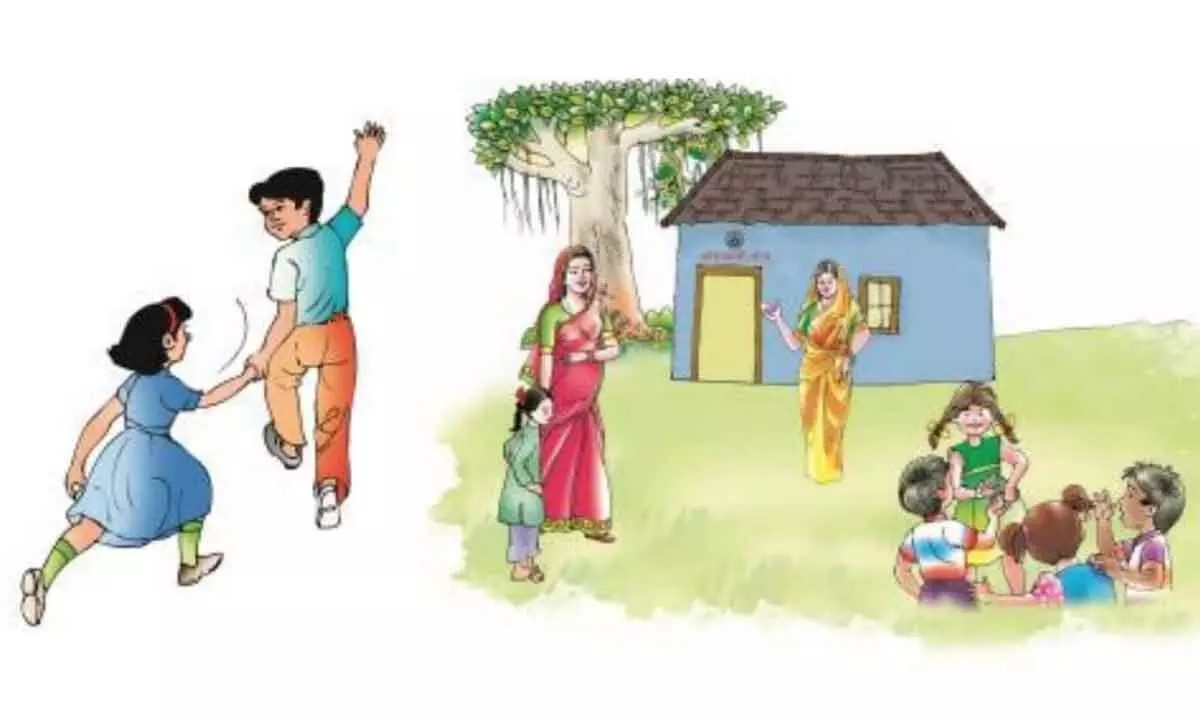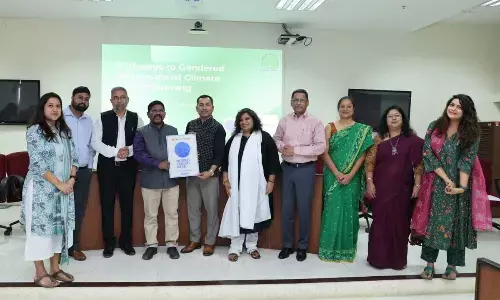No clarity yet on NEP rollout

The recently released National Curriculum Framework for the Foundational Stage (NCF) has caused futherconfusion among parents and teachers in Telangana.
Hyderabad: The recently released National Curriculum Framework for the Foundational Stage (NCF) has caused futherconfusion among parents and teachers in Telangana.
In a bid to implement the National Education Policy-2020, the Centre has come up with the NCF. It is expected to address the foundation state in the age group of students from 3-8 years in the new 5+3+3+4 system.
However, the State government stuck to its guns not to implement the NEP-2020, thereby cusing lack of clarity on its implementation from the next academic year.
Speaking to The Hans India, a senior official from the Telangana State School Education Department (TSSED) said, "There is no clarity given even from the Centre so far on the implementation of the NEP-2020. And, the department would take necessary steps only when the State government gives its nod for its implementation."
The State government claimed that it is not implementing the NEP-2020 as the Centre failed to consult it while finalising the policy. 'Besides the Centre usurping the State subject, it is violation of the federalism enshrined in the Constitution".
On the other Early Childhood Care and Education (ECCE) of the NCF of NEP-2020 claims,"the first eight years of a child's life are truly critical. Research from neuroscience informs us that over 85 per cent of an individual's brain development occurs by the age of 6, indicating the critical importance of appropriate care and stimulation in a child's early years to promote sustained and healthy brain development and growth."
It, in turn, lays the foundation for lifelong well-being, and overall growth and development across all dimensions - physical, cognitive, and socio-emotional.
"Indeed, the pace of brain development in these years is more rapid than at any other stage of a person's life," the newly released NCF stresses.
It further adds that the most current research also demonstrates that children under the age of 8 tend not to follow linear, age-based educational trajectories. It is only at about the age of 8 that children begin to converge in their learning trajectories.
Even after the age of 8 years, non-linearity and varied paces continue to be inherent characteristics of learning and development. However, up to the age of 8, the differences are so varied. Thus, the age of 8 years, on average, is a transition point from one stage of learning to another." Thus, it reasons that, in particular, it is only at about the age of 8 that children begin to adapt to more structured learning.
Against this backdrop, the Centre insists on adopting the ECCE under NCF beneficial for the overall development of children to lay strong foundations.
Unless the differences are sorted out, the ECCE of NCF is not going to be implemented from 2022-23 in Telangana.
However, a top state university official pointed out "whatever committees that the State government has so far appointed to improve the standards of primary and high school education in Telangana; the members of those committees are no mach to the expertise of those drafted the NEP-2020."














